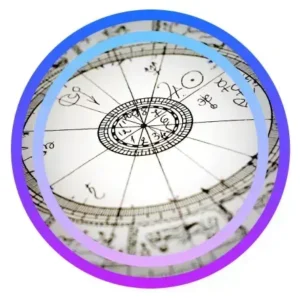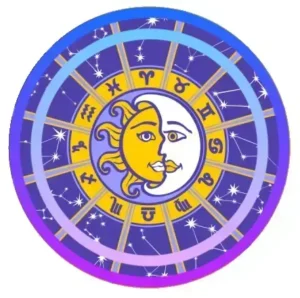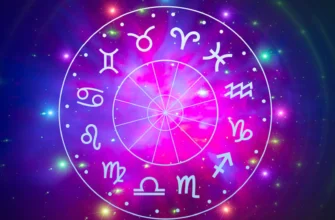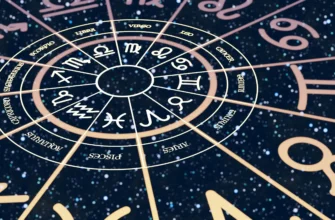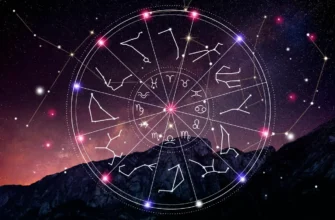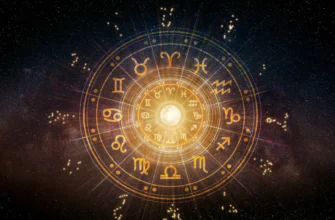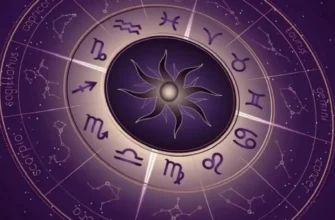Saturn trine Saturn in synastry reveals a bond built on shared long-term values, similar emotional maturity, and a matched approach to responsibility. In synastry chart meaning, Saturn represents structure, timing, and life lessons—so when two Saturns form a harmonious trine, both partners naturally understand each other’s boundaries, ambitions, and fears. This creates a relationship where stability doesn’t feel heavy, and commitment doesn’t feel like sacrifice.
In relationship synastry, this aspect shows that both individuals tend to make decisions in compatible ways, especially around finances, career direction, and lifestyle goals. It’s a powerful placement for couples who want to build something long-lasting together. Through synastry chart compatibility, Saturn trine Saturn enhances loyalty and emotional endurance, making the relationship strong during periods of stress. A synastry reading often reveals that partners with this aspect grow at the same pace and hold similar beliefs about work, responsibility, and what a serious relationship truly means.
Saturn trine Saturn in synastry ultimately represents professional and social-level compatibility – a shared framework for understanding reality’s constraints, aligned values about responsibility and achievement, and compatible approaches to navigating social structures, authority hierarchies, and serious endeavors requiring sustained discipline. This creates excellent foundation for business partnerships, professional collaborations, educational ventures, political alliances, or any serious work requiring mature judgment and realistic assessment of possibilities and limitations.
Saturn represents karma, responsibility, discipline, social structures, authority, maturity, limitations, and the accumulated wisdom about how reality actually operates in the Birth Chart. When two people’s Saturns form harmonious trine aspect, they share similar philosophies about these fundamental life domains – both understand social reality through compatible frameworks, both prioritize similar values around work and achievement, both respect similar forms of authority and social organization. This creates natural foundation for professional collaboration, business partnerships, or joint ventures in serious fields requiring sustained discipline and mature judgment.
The trine, as one of astrology’s most favorable aspects, creates smooth energy flow allowing both people’s Saturn energies to support rather than conflict. When Saturn trines Saturn, neither person experiences the other’s approach to responsibility, authority, or social reality as threatening, naive, or incompatible with their own worldview. They might not share personal tastes, emotional needs, or lifestyle preferences, but they fundamentally agree on how the social world operates and what constitutes realistic, responsible, mature approaches to career, authority, and achievement within existing social structures.
Social Values Versus Personal Compatibility
One of Saturn trine Saturn’s most important lessons involves recognizing that shared social values don’t automatically create personal compatibility or friendship – these represent entirely different relationship dimensions operating independently. In daily life, we repeatedly observe this distinction: people we deeply admire professionally yet wouldn’t choose as friends, or close personal friends with whom we’d never want to work. This reflects difference between Saturn-level compatibility (shared worldview about social reality) and personal-level compatibility involving emotional connection, shared interests, compatible communication styles, or similar approaches to pleasure and leisure.
Saturn governs our relationship to external social reality – how we understand authority structures, what we believe constitutes legitimate achievement, which forms of discipline and responsibility we respect, and how we navigate hierarchies, institutions, and collective expectations about success and maturity. When two people’s Saturns harmonize, they agree fundamentally about these social-level questions despite potentially having nothing in common regarding personal preferences, emotional needs, or private lifestyle choices.
This explains why some professional partnerships succeed brilliantly while participants barely tolerate each other personally. The lawyer and accountant whose Saturns trine might build highly successful business serving clients excellently despite finding each other’s personalities irritating, conversation boring, and lifestyle choices incomprehensible. At work, they need alignment on professional ethics, client treatment standards, quality expectations, and business strategy – all Saturn domains where their trine creates natural harmony. They don’t need to enjoy the same entertainment, share emotional intimacy, or want to socialize together – those domains involve other planetary energies (Venus for pleasure compatibility, Moon for emotional bonding, Mercury for communication ease) that might be absent or challenged despite Saturn harmony.
When examining horoscope compatibility through comprehensive lens, Saturn trine Saturn indicates these two people can work together effectively, build businesses successfully, collaborate on serious projects requiring sustained discipline, or partner in educational, political, or economic ventures where shared social values prove essential. However, it doesn’t predict whether they’ll enjoy each other’s company personally, become close friends, form satisfying romantic relationship, or desire spending non-work time together. Those questions require examining different planetary aspects addressing personal rather than social compatibility dimensions.
Career Development and Professional Support
Saturn trine Saturn proves particularly valuable for partnerships involving education, politics, economics, business management, or any serious professional endeavors requiring mature judgment, realistic assessment, sustained discipline, and ability to work within or navigate existing social structures and authority hierarchies. Both people share compatible understanding of how these domains operate, what constitutes realistic versus unrealistic goals, and which strategies actually produce results in harsh reality versus remaining pleasant fantasies.
In educational partnerships, both people might agree fundamentally on educational philosophy, appropriate discipline standards, realistic assessment of student capabilities, and proper balance between challenging students and supporting their development. They can co-teach, develop curricula together, or build educational institutions because their Saturns naturally align on what constitutes good education and how to structure learning environments effectively.
In political collaborations, Saturn trine Saturn creates shared understanding of power dynamics, realistic assessment of what’s achievable within existing systems, compatible approaches to authority and leadership, and similar philosophies about governance and social organization. They might occupy different political positions or represent different constituencies, but they understand political reality through compatible frameworks allowing effective negotiation, coalition-building, and practical achievement of goals within existing constraints.
In economic and business contexts, the trine indicates shared understanding of financial reality, compatible approaches to resource management, similar risk tolerance and investment philosophies, and aligned values around what constitutes ethical versus unethical business practices. They can build companies together, manage shared investments, or collaborate on economic development projects because both operate from compatible frameworks about how money, resources, and business actually function in reality.
The aspect’s power lies in mutual support and regulation – each person’s Saturn helps regulate the other’s, preventing either from becoming too rigid or too lax, too conservative or too reckless. They check each other’s judgment, refine each other’s strategies, and together develop more sophisticated approaches than either could alone. The regulation proves constructive rather than conflictual because both respect similar forms of authority and expertise, both value mature judgment over ego gratification, and both prioritize actual results over appearing right or maintaining control.
When consulting a Free Synastry Chart for business partnership or professional collaboration potential, Saturn trine Saturn indicates strong foundation for working relationship where both people can rely on each other’s judgment, trust each other’s commitment to shared goals, and count on sustained effort and discipline from each other over long time periods. The professional relationship can weather challenges, adapt to changing circumstances, and achieve ambitious goals because both people share fundamental understanding of what’s required for success in serious endeavors.
Maturity Development: The Thirty-Year Threshold
Saturn’s meaning and expression evolve significantly as individuals mature, particularly around age thirty when Saturn completes its first full cycle through the zodiac and returns to its natal position – the “Saturn return” considered crucial maturity threshold in astrology. Before this point, many people prioritize personal compatibility factors – whether someone’s personality entertains them, whether they share tastes and preferences, whether interaction feels pleasant and effortless. After Saturn return, priorities often shift toward social-level compatibility – whether someone shares their work ethic, whether they can be relied upon professionally, whether they understand reality similarly enough to collaborate effectively on serious endeavors.
This maturity evolution explains why Saturn trine Saturn’s value might not be recognized until both people reach sufficient age and experience to prioritize social values over personal preferences. The example of friends whose Saturns trine illustrates this perfectly: before age thirty, one friend found the other’s life dull and uninteresting, experiencing complete personal incompatibility despite Saturn harmony. After thirty, appreciation developed for the other’s pragmatic work ethic and reliable professional approach, even while personal incompatibility persisted. They don’t enjoy social time together, don’t share leisure interests, wouldn’t choose each other as friends – yet they collaborate successfully on literary projects because their aligned Saturns create foundation for professional partnership despite absent personal chemistry.
Saturn’s social values mature through accumulated experience – learning what actually works versus what sounds good theoretically, developing realistic assessment of human limitations and institutional constraints, and acquiring wisdom about sustainable versus unsustainable approaches to achievement and responsibility. Young people often hold idealistic social values not yet tested through hard experience. As Saturn matures through direct confrontation with reality’s constraints, values become more realistic, more nuanced, and more focused on what actually produces results rather than what conforms to ideological purity or theoretical elegance.
When two people whose Saturns trine both mature through their Saturn returns and subsequent experience, they develop increasingly aligned understanding of social reality even if they never develop personal friendship or emotional intimacy. They recognize each other as reliable professionals, competent collaborators, and trustworthy partners for serious endeavors – the highest compliment Saturn consciousness can offer, more valued than personal affection or entertaining personality once maturity prioritizes achievement and effective functioning over pleasure and emotional gratification.
In compatibility zodiac analysis incorporating life stage considerations, Saturn trine Saturn gains significance as both people mature beyond early twenties focus on personal chemistry and emotional intensity. For younger individuals, this aspect might not feel particularly meaningful or attractive – they’re still prioritizing Moon, Venus, and Mars connections providing emotional bonding, romantic attraction, and personal pleasure. For individuals past thirty who’ve experienced enough professional success and failure to recognize social values’ importance, Saturn trine Saturn becomes highly valuable foundation for relationships serving career development, professional achievement, and serious collaborative work even without personal intimacy or friendship.
The Contrast: Saturn Square Saturn
Understanding Saturn trine Saturn requires contrasting it with Saturn square Saturn, which creates fundamentally incompatible social values and worldviews. When Saturns square, both people experience the other’s approach to responsibility, authority, social structures, and realistic assessment as wrong, threatening, or incompatible with their own understanding. They might respect each other as individuals yet fundamentally disagree about how the social world operates and what constitutes appropriate responses to its constraints and opportunities.
Saturn square Saturn makes meaningful collaborative endeavors unwise because value clashes will inevitably sabotage joint projects. One person’s “reasonable compromise with reality” strikes the other as unethical capitulation to unjust systems. One person’s “maintaining necessary standards” feels to the other like rigid inflexibility preventing adaptation and growth. One person’s “realistic assessment” seems to the other like pessimistic defeatism or cynical abandonment of important principles.
These aren’t just disagreements that can be resolved through discussion – they reflect fundamentally incompatible frameworks for understanding social reality itself. The clash doesn’t necessarily create personality conflicts or prevent personal friendship, but it makes working together on serious endeavors requiring aligned values extremely difficult if not impossible. Career development suffers when partners fundamentally disagree about what constitutes ethical business practices, appropriate authority relationships, realistic goals, or proper balance between individual needs and collective obligations.
The square creates situation where each person’s Saturn energy threatens or undermines the other’s approach to building stable structures, achieving social success, or navigating authority hierarchies. What one person builds through their Saturn approach, the other’s Saturn perspective tends to criticize, destabilize, or regard as misguided. This doesn’t make either person wrong – they simply operate from incompatible frameworks about fundamental social realities, making collaboration on serious social-level endeavors inadvisable despite potential personal compatibility in other domains.
When examining astrology and horoscope patterns for professional partnerships, Saturn square Saturn serves as warning against business collaboration, shared professional ventures, or joint work in education, politics, or economics where value alignment proves essential. These two people might make wonderful friends, romantic partners, or creative collaborators in domains not requiring aligned social values, but they shouldn’t attempt building businesses, managing shared resources, or pursuing serious institutional achievements together because their Saturns will work at cross purposes despite both people’s good intentions and individual competence.
Mutual Regulation and Quality Control
One of Saturn trine Saturn’s most valuable functions involves mutual regulation where each person’s Saturn helps calibrate and refine the other’s judgment, preventing either from veering into Saturn’s shadow expressions – excessive rigidity versus insufficient structure, harsh criticism versus inadequate standards, pessimistic defeatism versus naive optimism about social possibilities, or controlling micromanagement versus neglectful hands-off approaches failing to provide necessary guidance and boundaries.
Saturn can become too harsh – criticizing excessively, imposing unnecessarily rigid standards, or punishing minor failures with disproportionate consequences. When one person’s Saturn begins operating too harshly, the other person’s harmoniously-aspected Saturn can moderate this tendency, reminding them that some flexibility serves long-term goals better than rigid perfectionism, that people learn through failures that harsh punishment simply discourages rather than corrects, and that sustainable achievement requires balance between high standards and realistic compassion for human limitation.
Saturn can also become too lax – avoiding necessary difficult conversations, tolerating substandard performance that undermines collective success, or failing to establish and maintain standards essential for quality and sustainability. When one person’s Saturn becomes too permissive, the other person’s harmoniously-aspected Saturn can provide necessary stiffening, reminding them that some situations require confrontation rather than avoidance, that maintaining standards isn’t cruel rigidity but necessary discipline, and that genuine respect involves holding people to standards reflecting their actual capabilities rather than lowering expectations to avoid discomfort.
This mutual regulation proves possible specifically because both people respect similar forms of authority and expertise. Neither dismisses the other’s input as coming from incompatible worldview or fundamentally misguided perspective. When one Saturn suggests adjustment, the other Saturn can hear it as valuable calibration from someone who understands the domain and shares basic values rather than as attack from someone who doesn’t comprehend their approach or circumstances.
The collaboration’s repeated success stems partly from this regulatory function – each project completed well because both people’s Saturns worked together preventing either extremes of excessive rigidity or insufficient structure, providing quality control through different perspectives rooted in shared fundamental values. Over time, this mutual regulation develops into sophisticated collaborative capacity where both people trust each other’s judgment, defer to each other’s expertise in appropriate domains, and together produce higher quality work than either could alone.
Beyond Work: Limited Personal Compatibility
While Saturn trine Saturn creates excellent foundation for professional collaboration, it provides limited basis for personal friendship, romantic intimacy, or family closeness. Saturn governs public persona, professional achievement, and relationship to social structures – not emotional intimacy, personal pleasure, domestic harmony, or the private self we share only with intimates. Two people whose Saturns harmonize might work together brilliantly while finding each other’s private selves incomprehensible, boring, or actively irritating.
The friends collaborating successfully on literary projects despite persistent personal incompatibility illustrate this perfectly – their aligned Saturns make professional collaboration productive and even enjoyable in work context, yet they still don’t “get along well in daily life.” They don’t want to socialize casually, share leisure time, or maintain friendship outside work context. The relationship exists specifically for professional purposes, serving that function excellently while remaining limited to that domain.
This limitation isn’t problem requiring fixing – it reflects appropriate boundaries recognizing that not all relationships need to serve all purposes. The professional partnership works precisely because both people understand and accept its limited scope, neither expecting personal intimacy or friendship to develop from professional compatibility. They respect each other’s expertise and judgment in work domain while acknowledging they wouldn’t choose each other as friends, companions, or intimate confidants – and that’s perfectly acceptable given their actual needs from each other.
For people hoping Saturn trine Saturn indicates potential close friendship or satisfying romantic relationship, disappointment often follows when they discover professional compatibility doesn’t automatically generate personal warmth, emotional connection, or desire to share non-work life. They might admire each other immensely, rely on each other professionally, and achieve remarkable success together while simultaneously finding each other’s company in casual contexts uncomfortable, boring, or actively draining.
Romantic relationships with Saturn trine Saturn but lacking other compatibility indicators (harmonious Moon aspects for emotional bonding, Venus aspects for affection and pleasure, Mars aspects for sexual chemistry, Mercury aspects for communication ease) often feel more like business partnerships than intimate connections. The couple manages household efficiently, raises children with aligned discipline approaches, makes sound financial decisions together, and presents united front to external world – yet they might lack warmth, playfulness, emotional intimacy, or genuine pleasure in each other’s company. The relationship functions well practically while remaining emotionally unsatisfying or personally lonely despite apparent stability and shared success.
Age-Cohort Considerations and Generational Alignment
Saturn spends approximately 2.5 years in each zodiac sign, meaning people born within roughly that timeframe share Saturn sign placement. When people born in same or adjacent years form relationships, their Saturns often naturally trine or sextile each other, creating cohort effect where entire age groups share compatible social values and worldviews shaped by similar historical circumstances and collective experiences during Saturn’s influence on their generation.
This generational alignment means Saturn trine Saturn appears frequently among colleagues, peers, or cohorts who came of age during similar historical periods, experienced similar economic conditions, and developed social values through comparable collective circumstances. They might disagree about many things yet share fundamental assumptions about social reality that younger or older generations don’t share – assumptions about technology’s role in society, appropriate workplace norms, gender relations, authority structures, or economic organization that seem self-evident to their cohort yet appear strange or wrong to generations formed under different Saturn influences.
The aspect’s presence doesn’t guarantee personal compatibility among age-mates, but it does help explain why professional collaboration often proves easier among generational peers than across large age gaps. Shared Saturn frameworks about social reality mean less time spent explaining basic assumptions, fewer fundamental disagreements about what constitutes reasonable or unreasonable approaches, and more automatic understanding of each other’s priorities and constraints even without extensive discussion.
However, Saturn trine Saturn can also appear across generations when geometric angles create harmonious aspects between different Saturn positions – for example, someone with Saturn in Taurus might trine someone with Saturn in Virgo or Capricorn despite being different ages. These cross-generational Saturn trines can create mentor-protégé relationships where older, more experienced individual and younger, less experienced individual share compatible social values despite different life stages, allowing effective knowledge transmission and professional development support that generational value clashes would otherwise obstruct.
The Professional Foundation
The aspect provides limited foundation for personal intimacy, close friendship, or emotionally satisfying romantic relationships. Shared social values don’t automatically generate personal chemistry, emotional bonding, or desire to share private life – those qualities emerge from different planetary aspects addressing different relationship dimensions. Two people whose Saturns harmonize might work together brilliantly while finding each other personally tedious, emotionally distant, or simply uninteresting as human beings beyond their professional capabilities.
For those exploring their Synastry online connections and discovering Saturn trine Saturn in significant relationships, recognizing this aspect’s specific domain prevents disappointment when professional compatibility doesn’t translate into personal friendship or romantic fulfillment. The aspect serves specific purpose – facilitating serious collaborative work and career development – and serves that purpose excellently without promising or requiring dimensions it doesn’t address.
Understanding Saturn trine Saturn means recognizing that relationships serve different purposes, that professional partners needn’t become personal friends, that we can deeply respect someone’s judgment and capabilities while finding their personality incompatible with our own, and that maturity involves prioritizing appropriate compatibility factors for relationship’s actual purpose rather than expecting every significant relationship to satisfy all possible needs. The aspect teaches that shared social values prove essential for some endeavors yet irrelevant for others, that work relationships and personal relationships involve different compatibilities, and that some of life’s most productive and valuable partnerships occur between people who wouldn’t choose each other as companions outside the specific domains where their talents and values align harmoniously.


